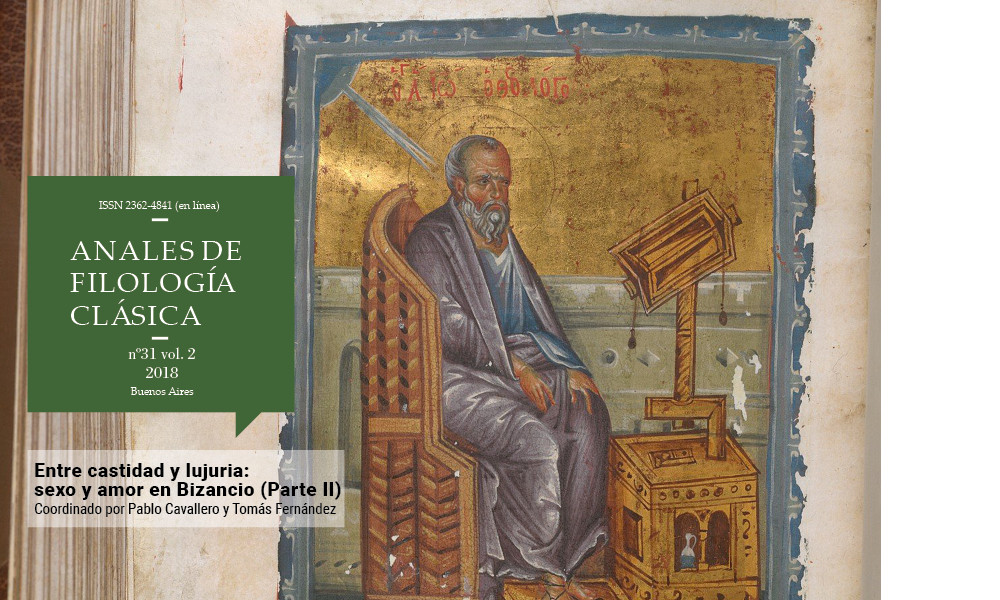The ironic praise: the consciousness of the erotikon as a proof of moral rectitude
Keywords:
psellos, chronography, Constantinus Monomachos, self-irony, Byzantine historiography
Abstract
It has often been stated that the Chronographia by the eleventh-century prolific author Michael Psellos is a piece of historiography that reads almost like a novel, and that Psellos spends much time on describing characters and taking ironical stances towards his imperial protagonists. This article claims that a refined version of this may be seen in Psellos’ book six on Constantine IX Monomachos. In this portrait Psellos explicitly states that he finds it hard to balance laudation and historical accuracy. We clearly see that Psellos owes favours to Constantine; on the other hand, his description of the rule of Constantine leaves no doubt that Constantine’s rule was fraught with problems. In the end –as it is here claimed– Psellos resorted to self-irony in the very last dramatic scene of the book, and thereby saved Constantine at least some praise, namely for being the only emperor who fully understood the hard conditions of rulership, that being emperor is something nobody can really sustain well to the end, as is also Psellos’ point elsewhere in the Chronographia. Constantine thereby becomes the only protagonist of the narration that shares this understanding with the narrator.Downloads
Download data is not yet available.
Published
2018-08-10
How to Cite
Høgel, C. (2018). The ironic praise: the consciousness of the erotikon as a proof of moral rectitude. Anales De Filología Clásica, 2(31), 47-53. https://doi.org/10.34096/afc.v2i31.6150
Section
Artículos
Los autores/as que publiquen en esta revista aceptan las siguientes condiciones:
- Los autores/as conservan los derechos de autor y ceden a la revista el derecho de la primera publicación, con el trabajo registrado con la licencia de Atribución-CompartirIgual 4.0 Internacional (CC-BY-SA 4.0) de Creative Commons, que permite el uso comercial de la obra y de las posibles obras derivadas, la distribución de las cuales se debe hacer con una licencia igual a la que regula la obra original.
- Los autores/as pueden realizar otros acuerdos contractuales independientes y adicionales para la distribución no exclusiva de la versión del artículo publicado en esta revista (p. ej., incluirlo en un repositorio institucional o publicarlo en un libro) siempre que indiquen claramente que el trabajo se publicó por primera vez en esta revista.
- Se permite y recomienda a los autores/as a publicar su trabajo en Internet (por ejemplo en páginas institucionales o personales) antes y durante el proceso de revisión y publicación, ya que puede conducir a intercambios productivos y a una mayor y más rápida difusión del trabajo publicado (vea The Effect of Open Access).
En ningún momento se cobrará monto alguno al autor por la publicación en esta revista.







